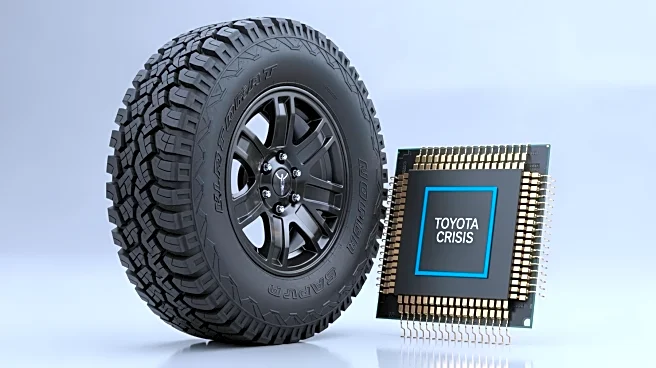What's Happening?
Toyota has announced that the Land Cruiser FJ will not be available in the U.S. market, as it is set to debut at the Japan Mobility Show and target emerging markets. This decision comes amid a new chip
crisis affecting the automotive industry, which has led to supply chain disruptions and production challenges. The Land Cruiser FJ's rugged design is aimed at appealing to consumers in regions where off-road capabilities are in high demand.
Why It's Important?
The exclusion of the Toyota Land Cruiser FJ from the U.S. market highlights the impact of global supply chain issues on automotive production and distribution. The ongoing chip crisis has forced automakers to prioritize certain markets and models, potentially affecting consumer choices and market dynamics. This situation underscores the need for the industry to address supply chain vulnerabilities and explore alternative solutions to mitigate future disruptions.
What's Next?
As the chip crisis continues to affect the automotive industry, companies may need to reassess their production strategies and explore partnerships to secure critical components. The focus may shift towards developing more resilient supply chains and investing in technologies that reduce dependency on specific materials. Additionally, automakers could explore new market opportunities and adapt their product offerings to meet changing consumer demands.
Beyond the Headlines
The chip crisis serves as a reminder of the interconnectedness of global industries and the potential ripple effects of supply chain disruptions. This situation may prompt broader discussions on economic resilience and the importance of diversifying supply sources. As industries navigate these challenges, there may be increased emphasis on innovation and collaboration to ensure stability and growth.









